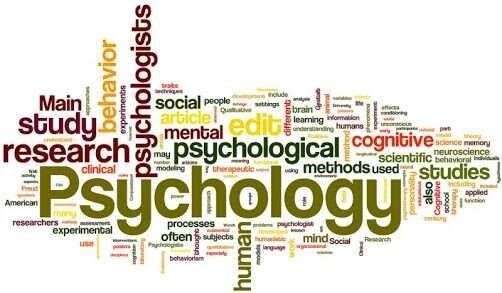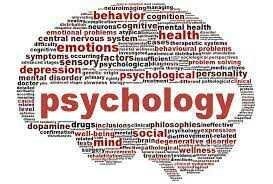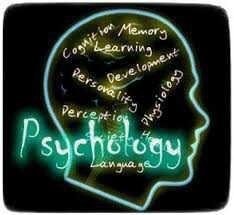Discussion about psychology in post steemit

In terms of technology, do you think we have gone too far or not far enough? If you look around, it's easy to see that most people in modern society have smartphones. Who uses email now? People communicate with Twitter, Snapchat, Instagram and Facebook Messenger.
In this article I want to focus on a very important aspect of his children's society. Most people associate the word "addiction" with alcoholism, gambling, or drug abuse. But some addictions are hard to detect. Have you ever worked with someone who always seems to be in a water cooler conversing with different colleagues or friends who always put their headphones in their own world. What about a child hovering over the blue light of a smartphone? I'm talking about "addiction" here.
A conference sponsored by the Common Sense Media was held on February 7, 2018. At the conference the question of whether children are really addicted to technology is debatable in haste.
Robert Lustig, a pediatric professor focusing on endocrinology at the University of Southern California and author of The Hacking of the American Mind, said at the conference that the answer to that question was a great echo.
"It's not an anesthetic, but it might be so ... It works the same way ... it has the same result," he said.
Lustig has spent a lot of time studying what happens to the brain when they are addicted, be it for sugar or heroin. What he has found may surprise you and amaze you. It turns out the brain responds to technology in the same way as it responds to other addictive substances.
"Technology, like other 'rewards', can overcome dopamine, overexcite and kill neurons, which lead to addiction," he said.
Using excessive technology can cause stress in the brain, which can cause the brain to release large amounts of cortisol, which can kill neurons in the brain's memory center (hippocampus). Another dangerous effect is stress can disable the brain's prefrontal cortex, or the "executive" brain part, which usually limits dopamine and our sense of pleasure or appreciation.
Here's the kicker! When the brain is accustomed to higher levels of dopamine, it definitely encourages the body to seek and increase consumption of addictive substances or habits.
Teenagers are very vulnerable to almost all mental illnesses. I am talking about diseases such as schizophrenia, anxiety, addiction and depression.
This is due to the fact that the prefrontal cortex occurs as the last part of the brain to develop and "myelinate," or develop a shell that protects the neurons. Sorry if I'm too scientific here guys!
The explanation for the question of whether children are actually addicted to technology is a difficult answer to answer scientifically but I do my best to help readers come to their own conclusions!
The reader should note that according to modern medical science, adolescents are particularly vulnerable to negative side effects of excessive use of technology and this seems to be provable by the following brain imaging and behavioral evidence of children. What this is all is the fact that there is indeed scientific evidence that technology hurt them. Because of these alarming findings, it seems more than clear that people need to cope, adults should take responsibility for this and they need to take action.
"Any force in our lives, whether it's substance or behavior that is ubiquitous, toxic, abused and has a negative impact on society requires some form of community intervention," he said. "Tech addiction clearly meets the standards."
Robert Lustig points out that the latest update to the Diagnostic and Statistical Manual, or DSM-V, published in 2013, extends the definition of what addiction includes behavioral addictions such as gambling and also substance addiction. Among the nine dependency criteria? Desiring certain goods, customs, or substances; use items that result in failure to complete main tasks (like jobs), and use of items that create hazards (like, say, check your phone while driving).
"This addition of plain and simple technology," he said. "If you think it's a drug addiction, you're wrong."
I think the above statement and quotation is convincing enough to see that there is indeed a problem here. The extent to which the problem is definitely to be debated but I am asking this. If you know that allowing your child to own and use a smartphone at a young age will have a totally negative result in their development and the potential for success and happiness they will eventually get in life, do you still let them have full access to things that. smartphone?
Jenny Radesky is a developmental behavioral physician who writes screen time guidelines for the American Academy of Pediatrics. When asked about the potential for technological addictions with children, here's what he says: "From an early childhood perspective, we do not use the word 'addiction' clinically or in research because it is childhood," he said. . "We use the idea of 'functional impairment', when media usage gets heavier so it affects children's behavior."
I have no children of my own but I have become a teacher and of course have noticed social behavior that has changed over the last few years. Children get used to playing with each other in class and spend a lot of time chatting with people around them. This of course seemed to change as I watched them take out their phones to talk to their 'digital friends' more often as time went on. The change in this behavior alone worries me.
Following in the footsteps of this thinking, there is much research showing that screen time is disturbing the underlying factors in a healthy child's development: sleep, healthy eating, and so-called "serving and restoring" moments between parents and children. This term refers to the speed at which parents respond to infants seeking reassurance and connection with eye contact, smile, and conversation, and which helps lay the foundations of a baby's brain.
Technology addiction is not just something to worry about in children, this problem also applies to adults. Imagine how highly addicted technology parents interact with their child. What type of trained behavior is taught without parents even knowing it?
One focus of Radesky's work is the self-regulation and executive functioning of young people-that is, whether children can concentrate, prioritize, and learn to control passing impulses. These skills can be predicted for many health, social, emotional, and cognitive outcomes. He worries that parents may use technology to replace or reduce family routines and child-rearing practices-for example, by calming an injured or disillusioned child by letting them play games on the phone rather than talking to them or hugging them. It can disrupt the development of children's ability to manage their own emotions. (Radesky is starting a major research project to examine this issue more, among others.)
I would say one of the greatest qualities I noticed in recent class students was that their attention span seemed much shorter than the students of previous years. The disturbance is real and technology presents more exponentially more of them with today's obsession with social media.
Others seem to agree with my thoughts on this. For example, Douglas Gentile is a professor of psychology at Iowa State University who has spent much time researching media effects on children for decades. In an interview with NPR he said that at first he viewed the issue of technology addiction from a position of deep skepticism. "Addictive video games? That can not be true," he said. "I am compelled by data to accept that this is a problem."
Taking a step back I should note that the Radesky I referred to above feels that young people are not automatically destined to become addicted to technology just because they own and use a smartphone or laptop computer but he thinks it's fair enough to talk about it. technology design as addictive or habit formers.
Obviously many games are developed for the purpose of attracting a child and getting them back again. "I feel very troubled when dealing with young people, because young people do not have awareness of when technology tries to captivate them," he said.
The idea that companies should change their technological design to be less addictive becomes a key point in the conference, as well as what policy topics can better regulate the monopoly industry to hijack our children's minds. Tristan Harris, a former internal ethicist at Google, argues that technology must change its design-for the sake of humanity. "I see this as a game until we change direction," Harris said.
I think Harris is very concerned about the statements he made above. Obviously there is a problem in any way you see. From a scientific and behavioral point of view, the issue of technological addiction can be seen in adults and children. The attention span has decreased and the desire for instant gratification has increased among all age groups. Unless we 'change direction' as Harris says, this problem will only get worse as future generations become more preoccupied with their technology addiction.
What do you guys think about this problem? Do we have a moral and ethical obligation to enter and overcome the problems that arise in relation to the dependence on childhood technology?

As a psychology addict I think it's time I discussed addiction on my blog. I believe this is a relevant topic because addiction of all kinds seems to penetrate society in a very real way. Among my family and close friends - a relatively small group of people - there are some workaholics, smokers, shopaholic and some IAD (internet addiction disorder).
Now, I'm sure you noticed that in addition to the nicotine that I mostly include in my list, non-chemical related addictions; and it is because it is now understood that some behaviors such as gambling, affect dopaminergic neurons in the same way as drugs like cocaine.
For this reason I fail to understand why DSM deals with addiction mostly in terms of substance 2. However, just in case you want to know what someone needs to be formally diagnosed as an addict, here are the criteria they need to meet in one year-period , with at least three of the following six:
- Tolerance
- Withdrawal
- The substance is taken in large amounts over than a longer period than it was intended
- There is a persistent desire or unsuccessful attempts to stop or cut down use
- Inportant social, occupational, or recreational activities are given up or reduced because of substance use
- Use in continued despite knowlegde that the substance is causing or exacerbating physical or phycological problems
Oh dear, if I substitute the word substance by Steemit it seems like I'm on my way to becoming a Steemit addict!
But, let's explore tolerance and withdrawal a bit further, because the other criteria are quite clear.
Tolerance & Withdrawal
DSM, which is not surprising, links the term tolerance to drug use alone, and defines it as the need for larger and larger quantities of substances to achieve the desired effect. Nevertheless, studies have shown that sex addicts experience similar needs to get the same level of similarity as they once did. And the reason I point this out is simply to highlight how some behavioral addictions are ignored, and sometimes, even ridiculed by the public in general. If, in fact, they carry the same emotional and life-threatening pressure with some drug addicts.
This is what Professor Ryan said in his autobiography book Secret Life.
My personality is formed around it [sexual addiction]. All my talents, all my excellent qualities as human beings, are devoted to service, and I am willing to sacrifice anything for that.
Furthermore, similar to substance addiction, addictive behavior leads to a feeling of better psychological states. For example, the act of going to a shopping mall and buying goods often elevates feelings of anxiety and depression. Sooo ....? Well, this sparked hope to revisit such emotional states in the future, thereby motivating people to repeat them over and over again.
Moreover, those who try to quit from addictive behaviors also experience the same withdrawal symptoms (eg irritability, stress, anxiety) just as individuals try to stop the use of certain addictive substances. Unfortunately, this is something faster than then encouraging them to go back to the high street, to the casino or to watch adult movies, in other words, they relapse again.
Next I will discuss some factors that make some people start such behavior and activities.
What drives people to addiction?
As I have always highlighted in our discussion, it is important to consider biopsychosocial models whenever the conversation shifts to mental well-being. Naturally when the topic is addictive, the first of three factors that come to mind is a social problem. Especially when referring to substances; But this is because they always seem to take place in a context (much like gambling) that has physical and social aspects that ultimately motivate the individual regardless of whether he is alone or with a group of friends.
And guess what I should describe this! An experiment with animals this week will be the same as mice. It is an animal model that shows how the environment and, at times, psychological states can encourage individuals to use opiates.
Social factors
Here, Alexander and Hadaway collect the entire social setting in which some mice can enjoy 'wealth' and friendship with other members. While in other different settings, rats who are less fortunate are placed in small individual enclosures. Predictably, the 'rich' rats take only a fraction of the substance when compared with the amount taken from the isolated and lonely. Therefore, it gives insight into the role of hopelessness and isolation that is played to motivate people to start (and, perhaps, keep) a drug or behavioral addiction.
Psychological factors
In the context of addiction stress becomes a difficult topic, because it can work first, as it encourages people to engage with behaviors and addictive substances - as we mentioned earlier that people will experience a better emotional state after shopping. And secondly, it can also be the reason why some people will recur again. This is because it is very difficult to say 'no' to temptation when feeling depressed.
What is important to note here, in particular, is that the majority of people who adopt addictive behavior or substance use seem to do it in order to solve the problem. Well, this is something I saw in my husband's stepmother, who took 'retail therapy' after a stressful week.
But, of course, there are more ways to addiction than the factors that drive individuals to it. This is a scenario involving factors that cause people to retain as much as the facts where individual differences should be considered.
Making Sense of Addiction
To understand why certain individuals use such strategies to solve problems, several models have been developed. This is a model for understanding addiction. I will discuss it here for a while.
Disease Dependency Model
It is a biomedical perspective to understand why some people become addicted and others do not. Thus, their primary focus is not on the environment or psychological aspects that might encourage someone to engage with drug use, or gambling, for example.
Through this lens, addiction is interpreted as 'disease' and not as an option as it was previously felt when this model emerged. The advantage of this view is that they do not blame the person. In this scenario addiction is not seen as a weak character type; which is something that allows individuals to focus better on rehabilitation, because it leaves no room for guilt.
Sensitivity models
Propose that genetic determinants may influence some behaviors that will increase or decrease the likelihood of a person becoming and an addict. Of course, no single gene is responsible for this influence; Instead there are several genes that in the social and environmental contexts contribute to the relevant behavior. This model goes so far as to propose that such genetic contributors even play a role in encouraging new search behavior.
Incentive Sensitization Model
A neurobiological model. This model largely suggests that addictions are revealed because individuals want the object of addiction (alcohol or shopping) more and more over time, as a consequence of the sensitization of mesolimbocortical pathways. This is due to an addiction brain changes experienced by repeated exposure to drugs or behavior, which triggers coercion and, ultimately, addiction.
Psychological Addiction Model
To address significant psychological factors that influence individuals to use addictive behaviors (factors left behind by biomedical models), psychologists feel compelled to decipher the addiction model as well. And while they sometimes oppose the disease model, it helps to see them more as a complement.
Choice Model Rational Dependency
Yes, we will discuss addiction here as a result of rational choice. And before your jaw drops, try to put yourself in the shoes of an addicted individual. Also, keep in mind that we are not talking about making the * correct option *. It may be difficult for you to understand why a person chooses to develop any addiction. Nevertheless, the reason behind it may be because of adopting a particular substance or behavior, the benefits brought may actually exceed the cost. As in some cases where people's lives are sometimes even worse without their addiction.
Dependence as Cognitive Bias
Cognitive bias is an error in reasoning, evaluation, reminders, or other cognitive processes, which often occur as a result of holding on to one's preferences and beliefs regardless of conflicting information.
It is the most widely recognized model of psychological addiction and suggests that the addicted person focuses on, and selectively memorizes certain information about their addiction as a result of their attention and the process of their memory. As a result, this leads them to a biased belief that disrupts a reasonable assessment of certain drugs and behaviors.
So, back to the complexity of addiction, whenever evaluating one of these models more deeply, the important questions to be asked are:
Does that explain things like how addictions are started and maintained?
Does it explain features like tolerance or withdrawal?
Does it consider individual differences such as personality?
And, finally, can you predict the appropriate treatment?

However, in the exploration of the more in-depth models listed above, you will find that some of them are more successful than others in answering these questions. Indeed, some will not even provide answers to specific questions.
The incentive sensitization model is, perhaps the most popular among mental health professionals; This is due to the large evidence base, and because it satisfactorily answers all of the above questions.
Reflection
Whenever I watch a documentary about drug addiction, or find people living with any addiction, I can not help but relate the situation to anxiety, sadness and stress. If you remember well, this is the emotional state we've mentioned here when discussing what drives people into addiction, or indeed, what causes them to recur. New types of addictions such as games, food and even Internet addiction appear as a means of escape and disruption. Of what? One might ask. Well, life is busy and amazing. I, for example, have a good life. However, sometimes it feels very stressful. And just as I write this, I am reminded of an interesting comment I received recently in my post Discussing a misconception about psychology, in which the reader asks the following:
Does stress not exist in humans forever or have we grown a more and more stressful environment?
Here is my answer to this reader, whom I decided to share with you all in an effort to understand our increasingly addicted society.
Yes, and stress is one of our biological components that allows us to grow as a species! However, the idea that the Biological Psychologist suggests that although culturally humans have traveled far from their ancestors, the span of some ten thousand years is not enough to allow the biological evolution demanded by the modern life of our species. In other words, our brains and emotional systems are still the same from when our species live in small kin groups as hunters / gatherers.

Thank you very much for taking the time to read one of my long old posts.
It's amazing @ f2ch. thoughts are very impressive comrades. you deserve a good appreciation for this.
A very good paper..
Yes of course.. Very genius and giving lessons to us.
Nice.. I give you a high applouse.
Thank you for your visit..
Congratulations! This post has been upvoted from the communal account, @minnowsupport, by f2ch from the Minnow Support Project. It's a witness project run by aggroed, ausbitbank, teamsteem, theprophet0, someguy123, neoxian, followbtcnews, and netuoso. The goal is to help Steemit grow by supporting Minnows. Please find us at the Peace, Abundance, and Liberty Network (PALnet) Discord Channel. It's a completely public and open space to all members of the Steemit community who voluntarily choose to be there.
If you would like to delegate to the Minnow Support Project you can do so by clicking on the following links: 50SP, 100SP, 250SP, 500SP, 1000SP, 5000SP.
Be sure to leave at least 50SP undelegated on your account.